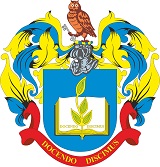Please use this identifier to cite or link to this item:
http://46.63.9.20:88/jspui/handle/123456789/481| Title: | Anti-mobbing Technology in the Conditions of an Educational Institution in Ukraine. |
| Authors: | Shvardak, M. Halus, O. Popovych, O. Ivanova, V. Molnar, T. |
| Keywords: | Educational institution head mobbing pedagogical management pedagogical workers |
| Issue Date: | 2021 |
| Publisher: | Scopus |
| Citation: | Shvardak, M., Halus, O., Popovych, O., Ivanova, V., Molnar, T. Anti-mobbing Technology in the Conditions of an Educational Institution in Ukraine. BRAIN. Broad Research in Artificial Intelligence and Neuroscience, 2021, 12(3), 343-362. https://doi.org/10.18662/brain/12.3/235 Scopus |
| Abstract: | The article reveals the essence of the concept "mobbing" and its classification in the context of pedagogical management. An empirical study has been conducted to identify the presence, frequency, causes, features of manifestations and consequences of mobbing processes in the teaching staff of general secondary education in Ukraine. Methods of randomized experiment, correlation analysis, scaling and ranking were used to process the research results. The results of the correlation analysis revealed causal relationships between some causes, manifestations, consequences of mobbing and certain statistical characteristics. The results of the empirical study prove the presence and prevalence of cases of mobbing in the teaching staff of secondary schools in Ukraine. The results of the study allow us to conclude that in general secondary education institutions, depending on the status of the persons involved, all three types of mobbing are implemented. Vertical prevails - 41.5%. Horizontal - 27.7% of respondents, mixed - 11.8%. 19% of respondents did not face mobbing. Depending on the specifics of harassment, there are different variations of mobbing processes, which sometimes overlap in their manifestations. Bosing prevails - 41.5%. 27.7% indicated bullying, social isolation - 15.8%, staffing - 14.7%, sandwich mobbing - 11.8%, gaslighting - 8.4%, outing - 7.7%, ageism - 6.8%, stalking - 5.9%, cyber mobbing - 4.7%. Also, based on the results of the survey, we can conclude that in educational institutions there are manifestations of obstruction - 3.1% of respondents. The general bases of anti-mobbing technology have been developed - a system of measures of the head and pedagogical workers to prevent, detect and combat harassment, moral pressure, psychological terror in an educational institution. |
| URI: | https://doi.org/10.18662/brain/12.3/235 http://46.63.9.20:88/jspui/handle/123456789/481 |
| Appears in Collections: | Кафедра менеджменту освіти та педагогики вищої школи |
Files in This Item:
| File | Description | Size | Format | |
|---|---|---|---|---|
| 4401-Article Text-14305-1-10-20210823.pdf | стаття | 691,61 kB | Adobe PDF |  View/Open |
Items in DSpace are protected by copyright, with all rights reserved, unless otherwise indicated.
